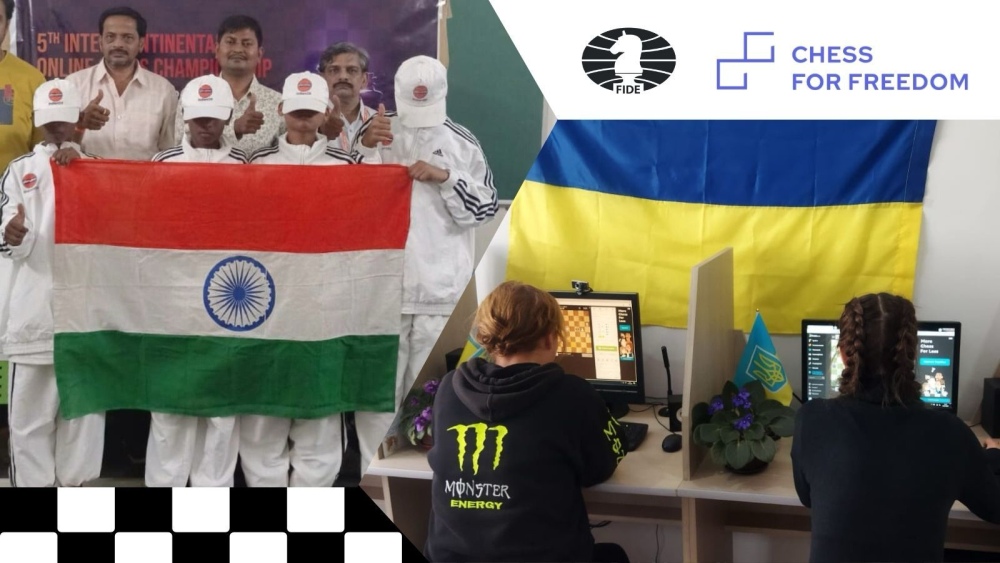
India won the male competition after a decisive Armageddon game in a tense final match against El Salvador. The women’s tournament was also closely contested, with El Salvador taking the title after beating Ukraine. The Youth competition title went to the all-female team from Iran, which defeated England.
The fifth FIDE Intercontinental Online Chess Championship for prisoners concluded after three days of play with winners crowned in the Male, Women’s and Youth categories.
The event unfolded across three stages: group qualifiers (14 October), the championship stage (day two), and the finals, which concluded today.
In most international chess competitions – from the Olympiad to continental team championships – players typically leave the board once their own game concludes, retreating to analyse their moves or decompress in private while their teammates fight on. But in the prison chess championship, the atmosphere was strikingly different. Here, players lingered long after finishing, following the remaining boards to offer quiet encouragement and moral support to their teammates. Even through prison facility cameras, the sense of solidarity was palpable – a team spirit born not just of competition, but of shared circumstance.
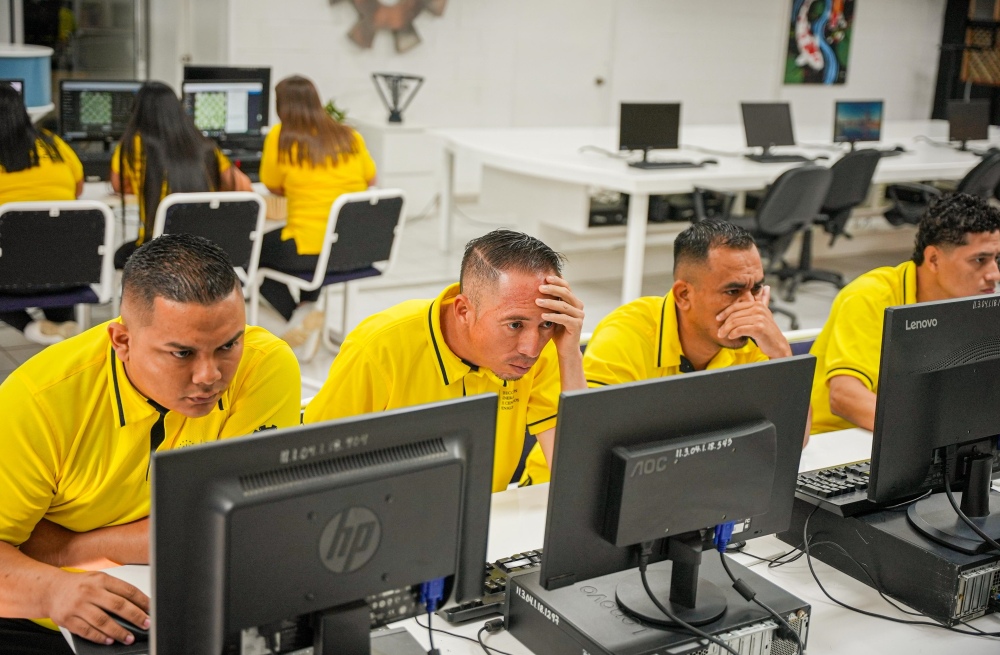
In the Men’s final, India faced El Salvador in a tightly contested four-match series. El Salvador started with a 3:1 win only to be defeated by India with 3:1 in the second match. In round three, India scored a narrow victory 2.5:1.5 but in the final round they were completely dominated by El Salvador with 3:1. The results took them to tiebreaks: in the Armageddon match, Indian top-board was better, securing the crown for the team. Mongolia took third place after beating Serbia 3 in the Blitz playoffs.

El Salvador also stood out in the Women’s competition, where their team beat Ukraine. Despite the narrow loss in the first match (2.5:1.5), El Salvador stormed back winning all three remaining matches with 3:1. El Salvador also had a team in the fight for third place (El Salvador 2) in the Women’s event, but they fell to Mongolia.
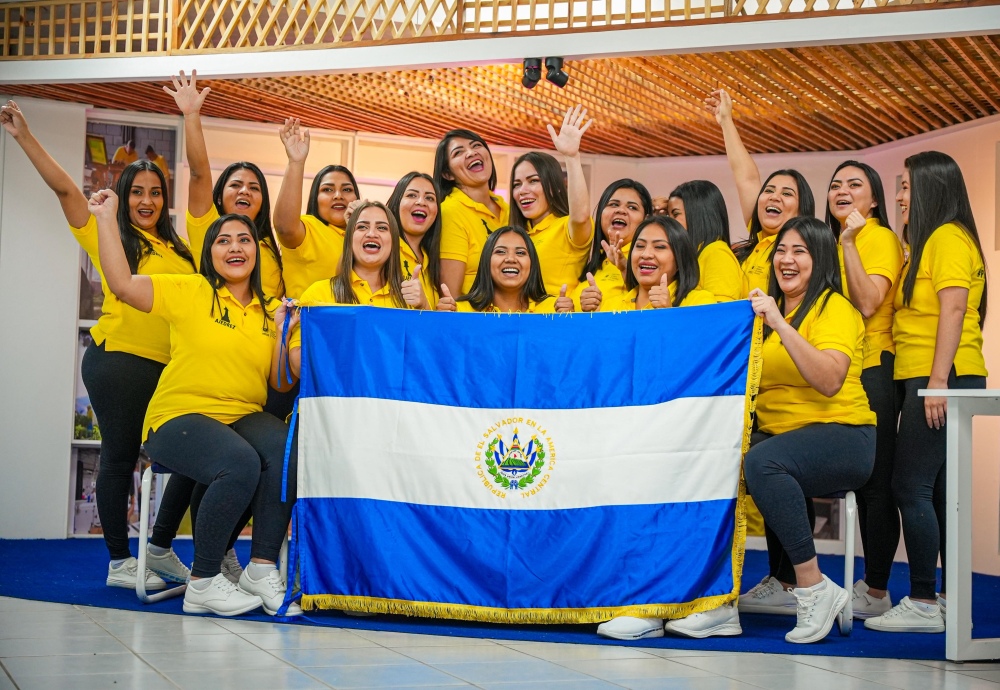
The Youth competition saw England and Iran face off in the finals. The all-female Iranian youth team defeated England 3:1 in the first match, while the second ended in a draw. Third place went to India, defeating Ecuador in both matches 3.5:0.5.
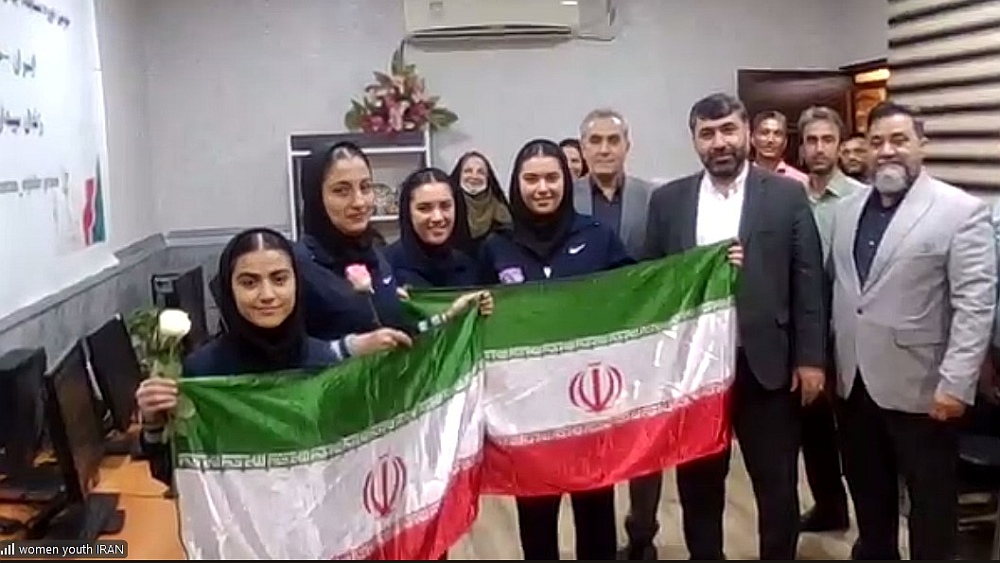
Starting with 42 teams in 2021, the fifth edition of the FIDE Intercontinental Online Chess Championship featured 135 teams from 57 countries. After five years, certain countries have shown consistent strong performance, specifically, Mongolia, Serbia and India who have so far (with the exception of Serbia this year) have consistently won a medal.
“The true victory lies in the personal transformation that chess has unlocked”
In his congratulatory message to the winners, FIDE President Arkady Dvorkovich stated that “although today we recognise those who have come up first, every single player who participated is a winner”.
The FIDE President went on to say that “the true winners of this event were not determined by the final round result or the scoresheet. In fact, the true victory lies in the personal transformation that chess has unlocked, and I hope you will see it through”.
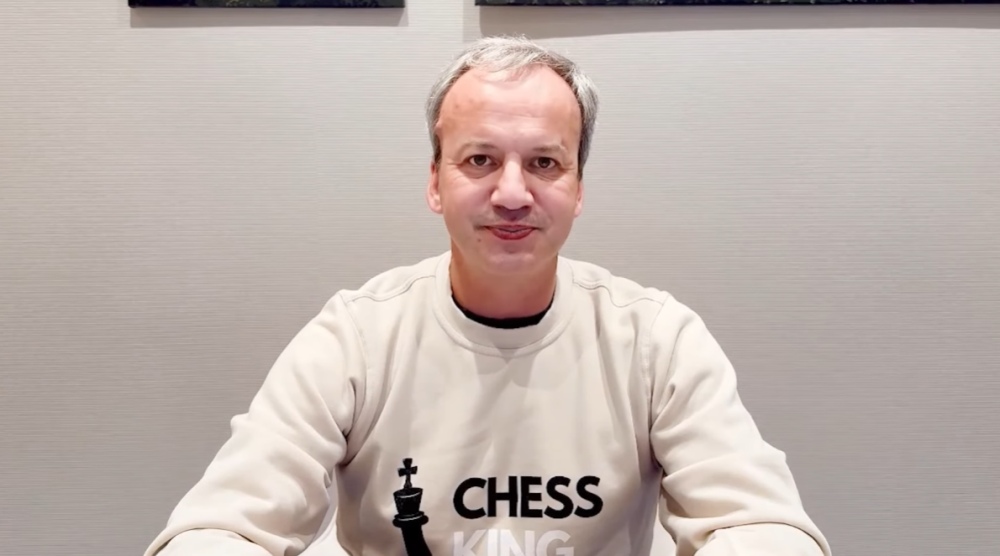
The successful conclusion of the FIDE Intercontinental Championship for Prisoners is a notable highlight of the Year of Social Chess which celebrated the game’s transformative power, providing the means for self-improvement and change.
“I hope chess will continue to be a loyal part of your life, guiding you and making you happy, challenging you to move forward and improve. The games are over, but the future is wide open. Make your next move really count, make it your best move”, Dvorkovich concluded.
Written by Milan Dinic
About the Chess for Freedom project
The Chess for Freedom project officially started in May 2021 with an online conference and an exhibition tournament with four participating countries. In October of the same year, the first International Online Chess Championship for Prisoners was held, growing each year and attracting more teams and countries.
The goal of the project is to use chess as a tool for education, personal development and change, helping inmates prepare for life after release from prison.
In prisons, just as in broader society, the impact of sport and games can be far-reaching. The experiences demonstrate that chess improves behaviour, helping to reduce inmate violence and developing communication skills, while promoting positive use of leisure time. Chess also drastically improves the decision-making capabilities of a group of people that, very often due to the lack of opportunities and access to proper education, has ended up in jail after making a wrong choice in life.
The project is closely coordinated with the Chess For Freedom Network which operates under the auspices of the FIDE Social Commission.
To get involved or get more information about the project, please visit: chessforfreedom.fide.com.

